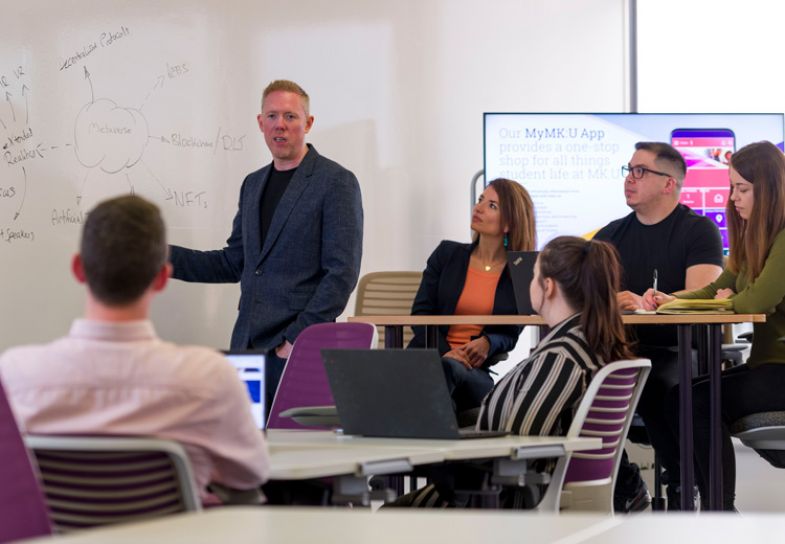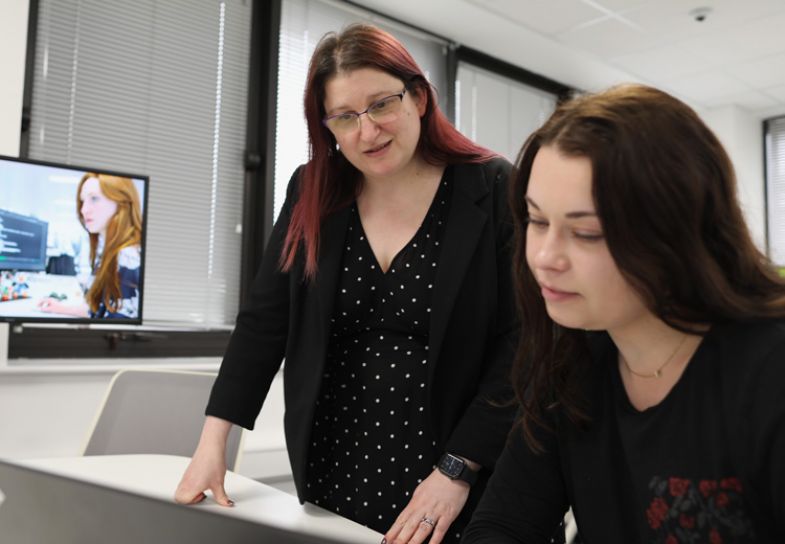
MK:U is using degree apprenticeships to address the UK skills gap in cybersecurity and open up the industry to a wider audience
According to research by the UK government, in 2023 there was an estimated shortfall of 11,200 people to meet the talent demands of the UK’s cybersecurity sector. The UK’s Department for Science, Innovation and Technology reports that half of UK businesses have a basic cybersecurity skills gap, while 33 per cent experience a critical gap in this area.
Cranfield University’s MK:U, based in Milton Keynes, wants to address this skills shortage and increase the diversity of professionals entering the sector. Initially established through a partnership between Cranfield University, Milton Keynes City Council and industry partners, MK:U is an innovative education centre that focuses on preparing students for the workplace. It offers higher and degree apprenticeships in fields such as management, data science, cybersecurity and robotics.
One of MK:U’s core programmes is the cybersecurity technical professional degree apprenticeship, intended for aspiring cyber professionals who have recently finished school or professionals who want to retrain in a new field.
“We look at everyone, regardless of background,” says Nikki Williams, head of data and digital education at MK:U. “The cyber sector needs people with lots of different skill sets and ideas to bring to the table – those who have different life experiences and can add a different set of eyes.” With women only making up 17 per cent of the workforce and filling just 14 per cent of senior roles, the sector needs diversification, Williams says.
 Nikki Williams, head of data and digital education, MK:U
Nikki Williams, head of data and digital education, MK:U
A degree apprenticeship can help widen the applicant pool for cybersecurity roles as students can earn while they learn. “They are better able to afford the course and their jobs are directly linked to what we’re doing in the classroom, so there is synergy,” Williams says. “This means they’re not graduating with debt and they add value to their employers.”
MK:U’s problem-based learning approach caters to the needs of students with varied levels of experience. It also accommodates students regardless of their prior technical knowledge by offering access at different course levels. As apprentices, students balance their time in the classroom with hands-on work experience. The course is a blend of in-person and online learning, which makes it feasible for employers from around the UK to partner with MK:U.
Because the cyber sector is changing quickly, it is important to equip students with adaptability skills along with technical knowledge. “They work on hypothetical and real-world case studies for which there might not be a set answer,” explains Williams. “It means they have the tools to look critically at each situation and consider the options.” In designing the curriculum, MK:U brought together professionals with different perspectives on cybersecurity issues, including human and psychological aspects. MK:U now has around 400 students taking part in various stages of apprenticeships.

Broadening access to a cybersecurity qualification aligns with MK:U’s philosophy of widening participation. In addition to adopting an inclusive approach to admissions, MK:U has designed its learning facilities to meet the needs of neurodiverse learners and students from marginalised backgrounds. There are support teams to assist students with accessibility needs and quiet spaces within the campus for breaks.
All learners are offered extra support if they struggle with any aspect of the course. This includes directing them to free online courses and providing access to a coach who can help them identify their strengths and weaknesses, says Williams. Ultimately, MK:U focuses on encouraging students’ active learning, collaborative group work and skills development to make graduates a valuable addition to the cyber workforce.
Find out more about Cranfield University’s MK:U apprenticeships.



